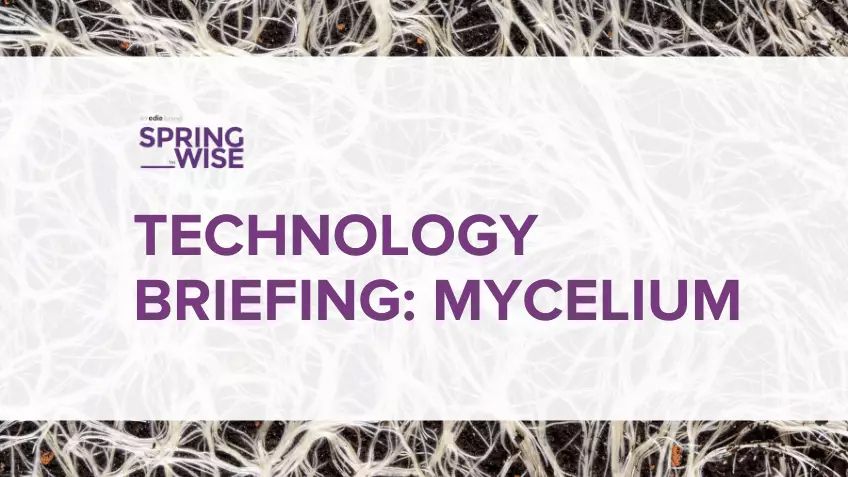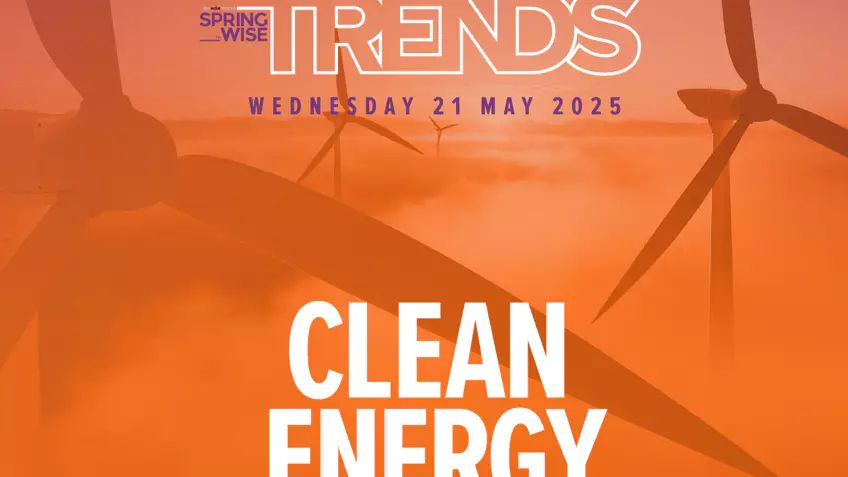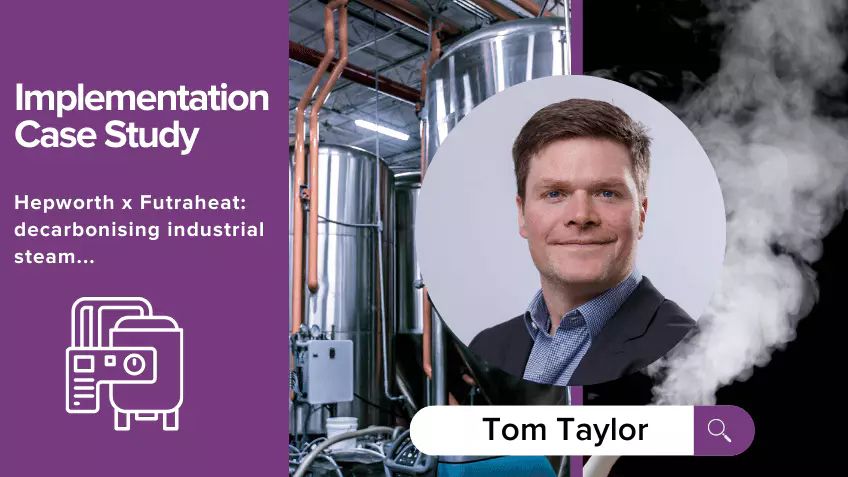
Issue 22 June 2025
Issue 22
Junes 2025
Low-waste retail
The path to less wasteful shopping
The world produces more than 2 billion metric tonnes of municipal solid waste every year. This includes all the non-industrial waste thrown away by households, businesses, and public institutions, and is made up of the items we use (and discard) on a daily basis.
It is generally well-understood that mismanaged waste has a negative environmental impact. Litter is one of the most visible forms of pollution to ordinary people, and the impact of plastic waste on ocean habitats has been powerfully highlighted in the media. Nonetheless, the scale of the problem deserves underscoring. Plastic production, for example, has more than doubled over the past two decades, and, as a result, plastic waste hit 360 million metric tonnes in 2020; it is forecast to surpass 615 million metric tonnes in 2040. According to Our World in Data, just under a quarter of all plastic waste is mismanaged or littered. Only 9 per cent is recycled, with the rest being landfilled or incinerated.
In addition to the physical presence of litter in the environment, there are other impacts associated with waste. In 2022, waste collection, treatment, disposal, and material recovery produced 3.7 million metric tonnes of CO2 emissions in the UK alone. And this does not include all the CO2 generated in getting the wasted products to consumers in the first place.
At the root of today’s waste challenges is the incumbent linear model of consumerism, in which the economy relies on ever greater extraction of resources and single-use is common for products and packaging. At the most fundamental level, the global ‘material footprint’ – the amount of raw materials we extract to meet final consumption demand – increased 113 per cent between 1990 and 2017, growing faster than both GDP and population.
Recycling has often been seen as the main solution to the problem of waste and resource intensity, yet while it has a role to play, recycling rates for municipal solid waste vary wildly between countries. The world’s largest producer of municipal solid waste, the US, had a recycling rate of just 25 per cent, as of 2022, with landfilling the most common form of waste disposal. It’s clear, therefore, that more needs to be done.
This edition of Future Now looks at a portfolio of different solutions, beyond recycling, that help businesses and consumers reduce waste at the retail level. It includes the latest innovations in reuse, repair, and refurbishment. Driving change in long-embedded supply chains is difficult, yet this report highlights some of the different models that forward-thinking businesses are developing.
Matt Hempstead
Commissioning Editor
According to Our World in Data, just under a quarter of all plastic waste is mismanaged or littered. Only 9 per cent is recycled, with the rest being landfilled or incinerated.
Waste-free returns
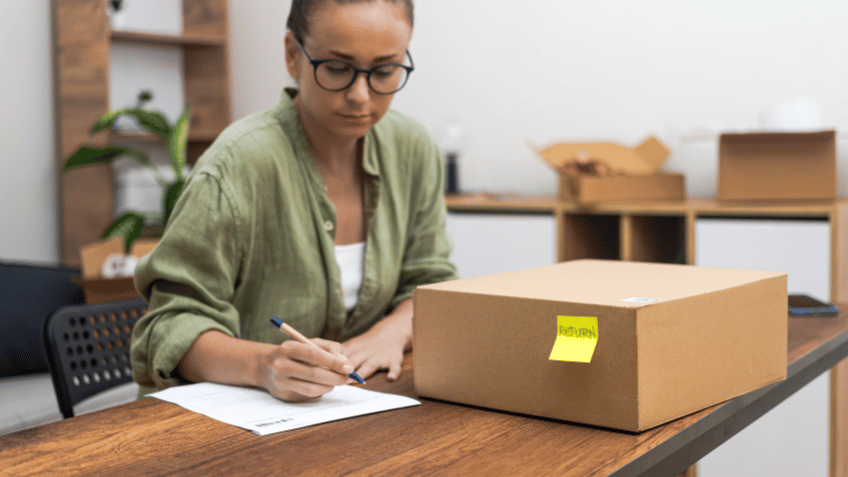
Photo source: © olga_demina / Adobe Stock
Routing returns to other online shoppers
The surge in online shopping, fuelled by the convenience of free returns, has inadvertently contributed to a significant emissions problem. Recognising this, Canadian startup Frate is committed to finding a solution.
Frate’s innovative white-label platform empowers e-commerce businesses to offer the option to return without sacrificing sustainability. Instead of traditional returns, Frate facilitates direct, peer-to-peer exchanges between customers, reducing the need for products to be shipped back and forth from the company warehouse.
When a customer indicates a desire to return, the platform encourages them to hold on to the product by offering discounts. At the same time, Frate also relists the product on the retailer’s store at a discounted price. If another customer then purchases that product within a given timeframe, the retailer can ship from one customer to another.
By leveraging AI to assess product condition through images, Frate ensures that only perfect items are listed and exchanged, while products in worse condition are resold as used items, diverted to a liquidation centre, or sent for recycling. This advanced approach minimises environmental impact by limiting unnecessary repackaging and expensive journeys back to the warehouse. What is more, it significantly enhances customer satisfaction by providing reassurance about product quality.
In September 2024, Frate raised CA$3.6 million in a seed funding round led by Matchstick Ventures. The startup already serves popular brands like Canada Pooch, Arezzo, and Schutz, but with the latest financing, the company hopes to further develop the platform and expand its operations.
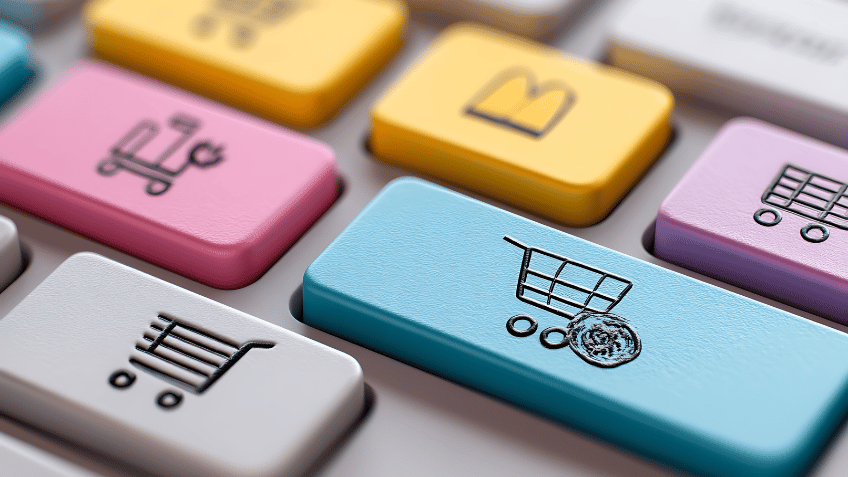
Photo source: © Abda / Adobe Stock
A platform helps retailers donate their returns
US startup LiquiDonate has developed a solution that uses an API called Magic Match to direct landfill-bound returns to organisations that could use them. This proprietary software can be integrated into all returns management software and retail website back-ends to instantly match all unsellable returns to a nonprofit with a matching need. Customers receive a shipping label to send returns directly to nonprofits, simplifying reverse logistics for retailers.
Businesses can also use LiquiDonate’s self-serve tool to liquidate their excess inventory quickly and sustainably by donating it to the most suitable nonprofit from a network of more than 3,500 partners. Businesses can donate individual items, boxes, or entire pallets. The platform makes it easy to keep items out of landfill, and circulate them back into the economy, helping retailers meet their ESG goals while also reducing costs.
As Renee Barker, LiquiDonate’s Director of Circular Economy Partnerships, explained to Springwise: “Much of the team has roots in nonprofit and sustainability work, and our culture is very centred on giving back. Our guiding mission is to accelerate the world’s transition to a circular economy, and we put that into practice every day because we are inspired by a future without waste.”
In September 2024, LiquiDonate raised a $3.75 million seed funding round, led by Laconia Capital Group, and the company has already onboarded more than 100 retailers.
Reusable packaging
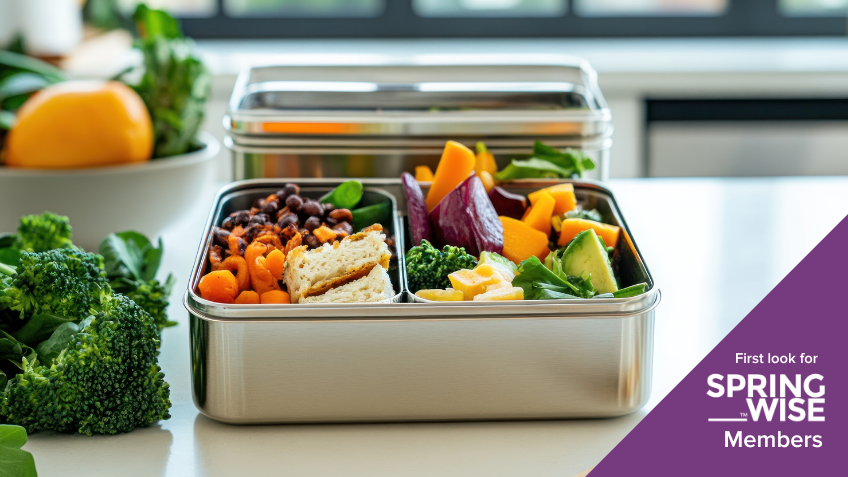
Photo source: © Ламина Акулова / Adobe Stock
‘Tap to reuse’ software for university and hospital food packaging
There is no shortage of startups aiming to build reuse systems for packaging in the food and beverage industry. However, a major bottleneck to scalability is the operational complexity of co-ordinating cleaning, inventory management, and logistics. Low return rates have also hampered many attempts to ditch single-use packaging.
Having pivoted from serving restaurants, Canadian startup Reusables.com is now focusing specifically on an area of the food industry where the reuse model has strong potential to scale: canteens in institutions like hospitals and universities.
The company’s software-as-a-service offering is hardware-agnostic, meaning that the technology can work with a range of reusable food containers. The system then begins at checkout, where a device is installed alongside the existing point of sale system. This digitally assigns each container to a specific customer. Unlike many systems that work on a deposit model (where customers pay extra up-front then receive the deposit back on return), customers are only charged if the system detects that the container has not been returned within an agreed time period. Even if the return window is missed, the charges are always refundable if the container is ultimately returned.
After finishing their meal, the customer then returns their container to a smart bin, ‘tapping’ it against a RFID reader so that the return is registered by the system and the user’s account updated. To prevent contamination from rubbish and other types of packaging, the bin will only open when the reader is activated.
The returned containers can then be collected by catering staff and washed on-site in standard kitchen dishwashers. This prevents the cost and CO2 emissions associated with transporting containers elsewhere for off-site cleaning – a model that has been tried by other startups. By implementing the system, organisations can ultimately earn the sustainability benefits of reuse while saving money that would typically be spent on single-use packaging.
In April this year, the company raised $3.6 million in a seed funding round led by major climate investors including StandUp Ventures, Amplify Capital, Sandpiper Ventures and Emend Vision Fund. It also announced that the University of California would be rolling out its system in honour of Earth Day 2025.

Photo source: © Andrey Popov / Adobe Stock
Transforming e-commerce with circular packaging
Packaging waste has become an increasingly pressing issue as online shopping has grown in popularity. Addressing this challenge head-on, Milan-based Movopack offers reusable packaging designed specifically for e-commerce.
Movopack’s circular solution replaces single-use packaging with durable alternatives made from recycled plastic bottles (rPET) and woven polypropylene (PP). These materials unlock material resilience during postal handling and allow each package to be reused up to 20 times. Not only does this approach reduce waste, but it also aligns with incoming EU legislation that mandates 10 per cent of e-commerce packaging to be reusable by 2030, increasing to 50 per cent by 2040. For its recent UK launch, Movopack has partnered with Royal Mail, enabling consumers to return packaging through an extensive network of over 115,000 postboxes.
Movopack aims to take a truly holistic approach. Beyond sustainability, the company provides customisable designs tailored to each brand’s identity and functionality requirements. Features like secure zips, Velcro closures, and ergonomic handles ensure practicality while enhancing customer experience. Tomaso Torriani, Movopack CEO, highlighted the company’s vision to Springwise: “Looking ahead, I want Movopack to lead the way in making circular packaging the standard for e-commerce.” The environmental impact is equally compelling, with the company estimating CO2 savings, equivalent to the absorption of 311 trees per day.
Currently, Movopack has secured partnerships with over 100 brands, including Brave Kid and Pretty You London. The company also recently secured £2 million in seed funding, led by 360 Capital and supported by Greiner Innoventures and Techstars, to support continued UK expansion and further development of the company’s circular logistics.
Movopack’s integration with major postal services and a focus on seamless logistics could position it as a market leader in circular packaging. By bridging environmental goals with brand identity, Movopack not only meets regulatory requirements but also sets a new benchmark for innovation in e-commerce.
Refurbished electronics
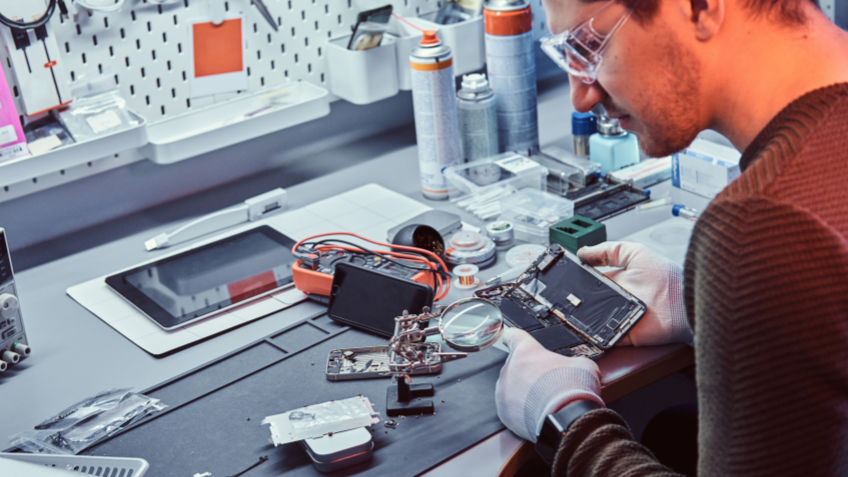
Photo source: © Fxquadro / Adobe Stock
Repairs that bridge the digital divide
Despite the fact that many, if not most, jobs require employees to have some digital skills, economic and logistical barriers around the world mean many people lack access to technology, the internet, and these valuable digital skills. In addition to affecting employment opportunities, this ‘digital divide’ can isolate people, negatively affect mental health, and lead to educational barriers as post-secondary education increasingly moves online.
ReCognition Circular is working to bridge the digital divide by collaborating with local governments in England to provide skills and training around IT equipment repair and refurbishment to those who are digitally disadvantaged.
Suitable for complete beginners, the organisation’s educational programme includes a toolkit, 60 hours of instruction, and a broken laptop or other device that participants will learn to repair over the course of the training and can keep afterwards.
After completing the training programme, participants will have the basic digital skills they need for everyday tasks like applying for jobs and opening bank accounts, as well as expertise in diagnosing and repairing common tech faults.
In addition to helping individuals gain valuable skills, ReCognition Circular’s programme reduces e-waste by recycling IT technology. This supports a circular economy where computers are recycled to help individuals overcome digital and employment barriers, while reducing the energy and resources used to produce new equipment.
The organisation is supported through donations and partnerships. Individual and business supporters can donate unwanted computing equipment, lease computers refurbished by ReCognition Circular’s students, volunteer to help students, or contribute money. It costs around £950 to fully fund a learner through the organisation’s training workshop.
Long-lasting clothing
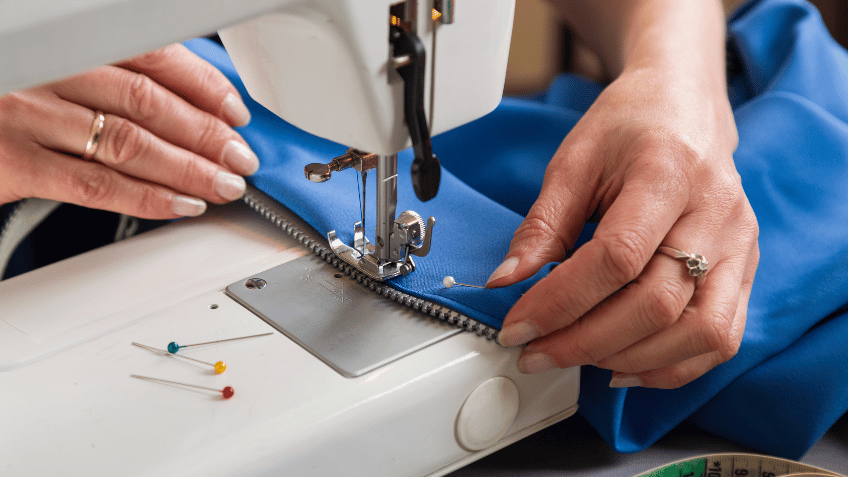
Photo source: © gkrphoto / Adobe Stock
A door-to-door repair service for clothes
As the full environmental impact of the textile industry has become better understood, the ‘slow fashion’ movement has been gaining speed. In contrast to ‘fast fashion’, slow fashion prioritises the preservation of resources and purchasing clothes that last.
One tenet of the movement is that clothing should be repaired and refreshed rather than thrown away. However, for those who do not sew, this can be difficult. This is where SOJO comes in. The company provides an expert repair and tailoring service designed to help people reduce the amount of clothing they buy.
SOJO offers a seamless online booking system, along with doorstep collection and delivery, making it easy for people to renew old clothes instead of buying new ones. Customers can request any alterations they like, whether that’s a simple repair or a more complicated redesign.
The startup’s service fits into the slow fashion movement in a number of ways, such as by helping to tackle textile waste, encouraging mindful consumption, helping to personalise clothing, and supporting skilled artisans and craftsmanship.
The company has partnered with several clothing brands to embed the idea of repair and ensure customers can keep their favourite clothes for a lifetime. This includes a partnership with Marks and Spencer, Temperley, and Scandinavian fashion giant GANNI, to offer free alterations and repairs on their pieces.

Photo source: © Monkey Business / Adobe Stock
A reuse community for sustainable school uniforms
As any parent knows, children rapidly grow out of their clothes, meaning parents must constantly make new purchases to keep them well-dressed. This is both expensive and unsustainable. Cress is working to change this by encouraging parents to pass their children’s old school clothes on to other parents rather than throwing them away.
Cress is a digital marketplace that partners with schools to allow families to donate and buy pre-loved clothes and school uniforms – and help schools raise additional funds. Cress offers three options for schools to choose from: a zero per cent commission, where Cress will create a school shop, and the school handles the rest; a 10 per cent commission, where Cress creates the shop and uploads the items, and the school is responsible for getting clothes to buyers; and a 40 per cent commission, where Cress looks after the whole process, including cleaning, storing, and posting items when they sell.
Cress also offers an option called Golden Service, which allows parents to send unwanted clothes directly to Cress. For a 40 per cent commission, Cress will photograph and list the items on their platform and handle all aspects of the sale.
To maximise its positive impact, Cress has also partnered with Carma, a Manchester-based climate impact company. For every item sold through the platform, Cress will contribute to planting new trees across the UK. The startup also works with Awesome Books, enabling participating schools to access free books.
Last month, Cress raised $234,000 in pre-seed funding from a number of angel investors. The funds will be used to enhance the digital rollout of its platform.
Product-specific solutions
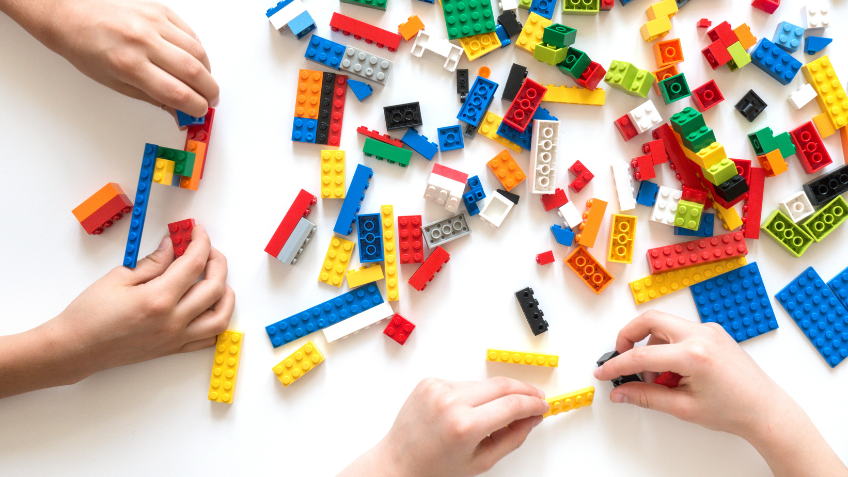
Photo source: © vejaa / Adobe Stock
Giving old toy bricks a second lease of life
LEGO is one of the most popular toy brands in the world, with 30 LEGO sets sold every second around the world in the run-up to Christmas. As avid users of this kind of toy know, it’s extremely easy to misplace a brick or two, which can render entire sets unusable and bin-bound if these lost parts are important. Startup Sort A Brick is on a mission to change that.
Instead of allowing neglected toy bricks to sit in landfills, the company is helping enthusiasts repurpose their bricks and make the most of existing sets. Users simply send all of their mixed-up bricks to Sort A Brick before choosing the new models they want to build.
The company cleans and sorts the bricks with the help of AI-powered computer vision, then adds any missing items needed to complete the chosen models, which cost around a quarter of the price of a brand-new set. The bricks are then packed and shipped out to users, who now have the exact components they need to build the designs of their choice.
Ilya Malkin, co-founder and CEO, told Springwise that the idea for the company was conceived while he was playing LEGO with his kids. “Like many parents, I’ve struggled to make sense of buying new LEGO sets while unused bricks accumulate dust in our closet. I tried sorting old bricks by hand, but it proved too tedious. That’s when the idea for automatic brick sorting was conceived.”
In May 2025, Sort A Brick raised €1.5 million with backing from NGL Ventures, 27 Angel Syndicate, FIRSTPICK, and angel investors. The funding will be used for investments in machinery and advanced computer vision technology, as well as market testing and software development.
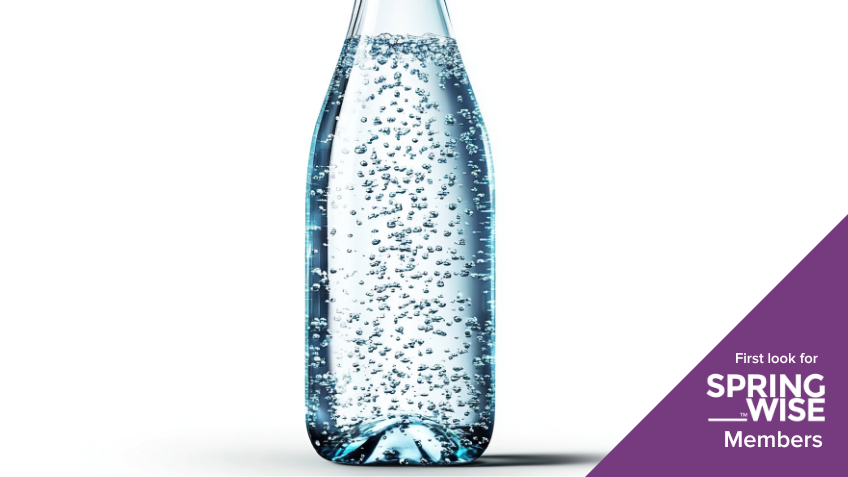
Photo source: © Elang / Adobe Stock
A portable device for sparkling drinks in reusable containers
Plastic water bottles are one of the most visible forms of plastic waste, and while many consumers are switching to filling (and re-filling) their own bottles from home, 7.7 billion plastic bottles are bought annually – in the UK alone.
Ditching plastic bottles is easy if you stick to water. But what if you have a taste for sparkling drinks that typically only come in single-use packaging? Companies like SodaStream have found success by developing add-your-own-fizz devices, but these are typically designed for home use and are too bulky to be used on-the-go. Now, however, US startup Aerflo has developed a reusable bottle that can add sparkle to water from any source.
The bottle’s cap houses a carbon capsule that is used to carbonate the water in the bottle at the touch of a button. The user can see the carbonation in real time, and each capsule has enough capacity to carbonate four full water bottles.
Not only does Aerflo’s bottle displace the use of single-use plastic bottles – it also reduces greenhouse gas emissions associated with shipping sparkling water products to the consumer, often over thousands of miles. What is more, the carbon capsules are reused in a completely circular system. The user sends their empty capsules back to Aerflo using the same packaging they came in, and with a pre-affixed return label. This, in turn, triggers the company to send the user a new box of full capsules.
Because users automatically receive new capsules when they send in their used ones, there is no need for recurring subscriptions. This means the user only receives new capsules when they need them, preventing unused new capsules from piling up in consumers’ cupboards.
In August 2024, the company received more than $10 million in capital funding, which it is using to build out its refill infrastructure.
